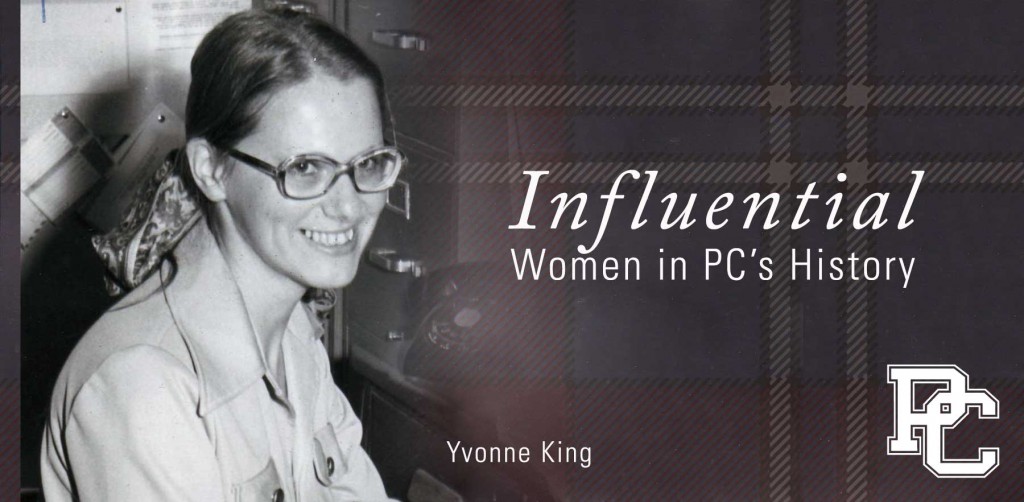Influential Women in PC’s History: Yvonne King

What educators today label “multicultural” as a trend for enabling their students to understand life in a global society, Yvonne King was incorporating in her classroom decades ago.
A professor of French for 18 years at PC, King emphasized not only the spoken language but also was a specialist in modern French literature who incorporated cultural awareness into the classroom and was instrumental in promoting study abroad for students.
A native of England, King was the wife of English professor Allen King.
She taught French at Pilgrim School, Bedford, England for two years and then taught at Madeley College of Education in North Staffordshire for two years. In 1967, she came to Presbyterian College as Professor of French and became Modern Language department chairman in 1975. During her time at PC, she initiated many study abroad programs in Lyon, Paris, Ail-en-Provence and Strasbourg, France, as well as programs in the British Isles and was responsible for bringing the first French assistants to campus.
King served as Secretary Treasurer of the SC chapter of the A.A.T.F. She was involved in the organization of seminars and conferences on teaching foreign languages in England and the U.S. She also studied French theatre, French literature, European Unity, Caribbean literature and culture, F.L. teaching methods in France, Martinique, and Germany. She published articles on theater, travel, and books.
Upon her retirement from PC, her excellence as a teacher was recognized by her colleagues. King was also honored by PC during the 125th Year Anniversary as one of the 125 individuals and groups to shape the college.
She traveled widely in Europe with many visits to England and France, also to her mother’s homeland Estonia, Russia, Malta, Norway, Denmark, Germany, Austria, Belgium, Holland, Italy, Spain, Mexico, Canada, and Martinique. Yvonne made friends all over the world and thanks to a remarkable will to communicate, she kept in touch with them until her death. She worked as a volunteer at the Soup Kitchen, for Amnesty International, Greenwood Museum and at a homeless shelter in Atlanta.
A citation in the 1978 edition of the PaC SaC, which was dedicated to her, reads:
“Those of us who are fortunate enough to be in her classes know the careful preparation she puts into each lesson. She teaches each class with imagination and vitality. She trusts us to take seriously the responsibility for our education. By setting high standards, she encourages us to learn as much as we can. And when we fail, and we do fail frequently, she always gives us another chance. For her, we want to do better next time.”
